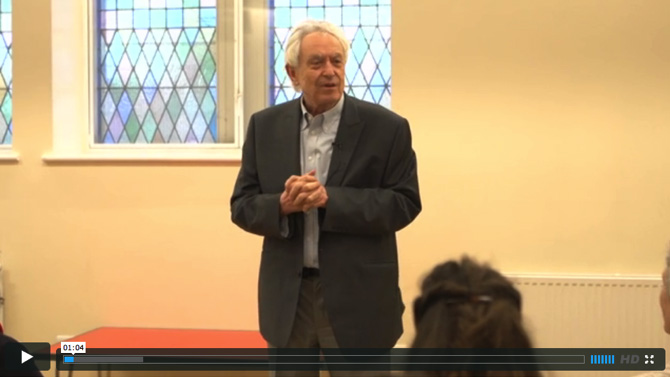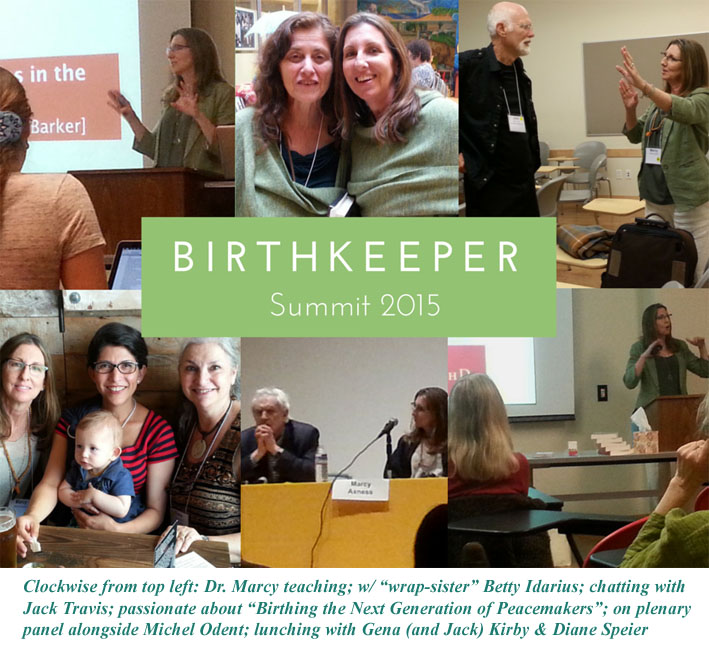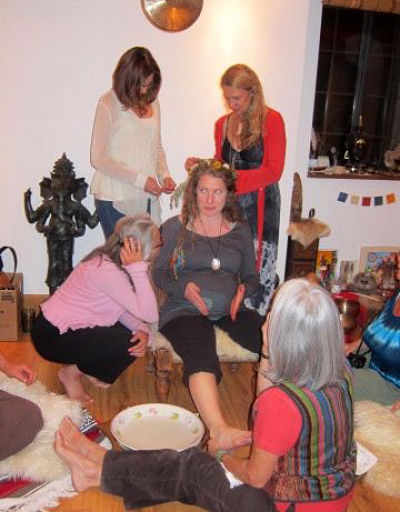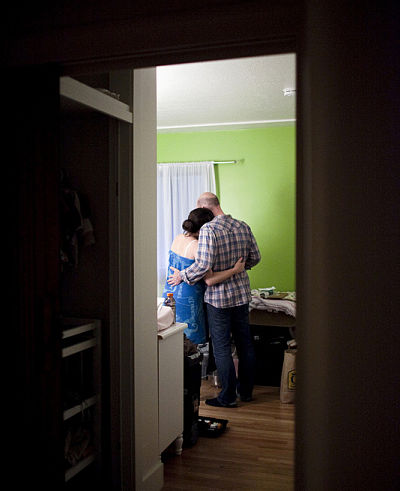 Last fall I sat riveted in a Honolulu conference room, listening as obstetrician and primal health researcher Michel Odent declared that women are losing the capacity to give birth. Odent makes the compelling case that this is happening thanks to the systematic (yet unconscious) disuse — and thus, atrophy — of our human oxytocin system over the past few decades. He draws stunning parallels between the decline in physiologically normal births, the increase in autism and (forgive the pun) the rise in male erectile dysfunction. Those all rely on the same system: without oxytocin there is no physiologically normal birth, no human empathy, and no intercourse!
Last fall I sat riveted in a Honolulu conference room, listening as obstetrician and primal health researcher Michel Odent declared that women are losing the capacity to give birth. Odent makes the compelling case that this is happening thanks to the systematic (yet unconscious) disuse — and thus, atrophy — of our human oxytocin system over the past few decades. He draws stunning parallels between the decline in physiologically normal births, the increase in autism and (forgive the pun) the rise in male erectile dysfunction. Those all rely on the same system: without oxytocin there is no physiologically normal birth, no human empathy, and no intercourse!
Over many years Dr. Odent has applied a revealing lens on a range of mental health issues: zeroing in on a central feature of conditions such as autism, criminality, suicide, he has cast it rather lyrically as “an impaired capacity to love.” When he used this novel perspective from which to survey a broad spectrum of supposedly unrelated research–on juvenile violent criminality, teen suicide, autism, anorexia, obesity and more–he found something striking: “[W]hen researchers explored the background of people who have expressed some sort of impaired capacity to love–either love of oneself or love of others–they always detected risk factors in the period surrounding birth.”
I spotlighted a few of Odent’s perspectives in my report on the new findings on the connection between induced labor and autism risk. This week it so happens that I’m working on a textbook chapter on “Pre- and Perinatal Influences on Female Mental Health,” and here again, Dr. Odent’s prescient insights emerge as key points. Here’s one example (and sorry — please excuse the textbook-y language!):
Given the gender gap of depression and the fact that twice as many women as men suffer from major clinical depression–one woman in eight experiences at least episode in her lifetime–it is relevant to include Odent’s observation that the rate of college students reporting they’ve been diagnosed with depression has risen from 10% to 21% in just eleven years! Acknowledging the complex causal tapestry involved in depression, he urges us to consider that in that same decade, 2000-2011, “it was a time when the number of women who were able to give birth to their baby and to the placenta thanks only to the release of their natural hormones dramatically decreased.” He reminds us that depression is related to how stress-axis “set points” are established in the pre- and perinatal period, pointing out the myriad brain areas showing altered activity in depressed subjects that have an important phase of development and “set point” adjustment during the period surrounding birth.
An Audience with Michel Odent
I was privileged to have the opportunity to be one of a small number of people at that breakout session of Michel Odent’s Mid-Pacific Conference on Birth & Primal Health Research. Now, thanks to the recent release of his important book Birth and the Future of Homo Sapiens…and the fact that his London book launch event was videoed…you have the opportunity to listen firsthand to this visionary thinker talk about these oh-so-important topics! Provided you can understand him (the author of this excellent UK Telegraph article writes that Odent’s French accent is “as thick as a ripe Brie”), it is a master class in visionary thinking about the future of humanity.

Odent cautions us (with respect to our tendency to anguish over studies like the new one linking labor induction to autism risk) that when reading about such studies…or listening him talk about any of the conditions he is researching through a primal health lens…you cannot be thinking of your own family, your friends, or your neighbor’s cousin’s autistic son. These are population-based (epidemiological) studies that reach conclusions in terms of tendencies, risk factors and statistically significant differences amongst huge numbers of people. It is not appropriate or valid (although it is always tempting) to apply these autism risk findings to specific individual cases!
Contrary to one of the many vitriolic comments to the Telegraph article, this is the reason he says his new book is NOT meant to be read by pregnant mothers. Too close, too often-bleak. Michel Odent is the first one to promote chronic JOY in the lives of pregnant women.
The rest of us, though, best get our heads out of the sand and look at the big…the really big…unified picture of birth — and autism — and erections — and the future of us all.


 It was my pleasure and honor to participate in a Blessingway ceremony for Kristin, a member of my mountain community whose baby is due this fall. As I watched her sitting in her chair of honor…like a goddess on her throne…and we showered her with our womanly care in various ways — massage, braiding & adorning her hair, laying hands on her belly — I thought about the biochemical messages her baby was receiving during those lovely hours: I am loved… I am celebrated… the world is a safe, nurturing and caring place.
It was my pleasure and honor to participate in a Blessingway ceremony for Kristin, a member of my mountain community whose baby is due this fall. As I watched her sitting in her chair of honor…like a goddess on her throne…and we showered her with our womanly care in various ways — massage, braiding & adorning her hair, laying hands on her belly — I thought about the biochemical messages her baby was receiving during those lovely hours: I am loved… I am celebrated… the world is a safe, nurturing and caring place.
 Presence – I can think of few more potent opportunities to discover and practice advanced dimensions of this principle than during labor and birth. Birth anthropologist Robbie Davis-Floyd, in describing how she charted a new rapport with presence during her second labor (a home VBAC), compares it to swimming a marathon, noting that the champions “don’t count the distance. They enter a timeless dimension, where this stroke is all there is. This stroke, and this one, and then this one. I am in that timeless world. I quit wondering eons ago when the baby will come out. There is only this contraction, and this push, and this pause, and then this contraction, and this push, and—Then the midwife’s Voice, summoning forth my consciousness from its burial in the depths of sensation.”
Presence – I can think of few more potent opportunities to discover and practice advanced dimensions of this principle than during labor and birth. Birth anthropologist Robbie Davis-Floyd, in describing how she charted a new rapport with presence during her second labor (a home VBAC), compares it to swimming a marathon, noting that the champions “don’t count the distance. They enter a timeless dimension, where this stroke is all there is. This stroke, and this one, and then this one. I am in that timeless world. I quit wondering eons ago when the baby will come out. There is only this contraction, and this push, and this pause, and then this contraction, and this push, and—Then the midwife’s Voice, summoning forth my consciousness from its burial in the depths of sensation.”  Last fall I sat riveted in a Honolulu conference room, listening as obstetrician and primal health researcher Michel Odent declared that women are
Last fall I sat riveted in a Honolulu conference room, listening as obstetrician and primal health researcher Michel Odent declared that women are 


